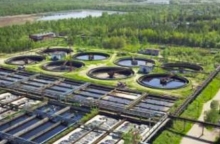Water companies and trends in Europe
24 September, 2012
Source:
PSIRU

This major new research paper on the activities of the water companies in Europe reveals a series of trends.
- The ownership of private water companies in Europe in 2010 is overwhelmingly dominated by the French multinational Suez Environment (part of GdFSuez) and Veolia.
- Both Suez and Veolia, and other smaller companies such as SAUR (French) and FCC (Spanish), are increasingly dependent on state capital for activities in water, both from the government of France and from international development banks, including the EBRD and the IFC.
- There continues to be a significant trend towards remunicipalisation, with cities such as Berlin and Budapest following the example of Paris.
However, the austerity packages imposed in countries of southern Europe have become a new driver for privatisation. - There is continued strong public resistance to water privatisation, notably in Italy, in Portugal against the privatisation of Aguas do Portugal, in Greece, against the proposed privatisation of water in Thessaloniki and Athens, and in Spain, against the proposed privatisation of Canal Isabel II in Madrid.
- The EU’s long-awaited policy on water resources will be issued at the end of 2012, and the companies are already lobbying on this. But the EU’s development policy in relation to water is more sympathetic to public provision, and more critical of the private sector.
The paper was commissioned by EPSU from the University of Greenwich Public Services International Research Unit, the world’s leading research body on the water industry and activities of private companies which over 20 years of experience exploring this sector.

